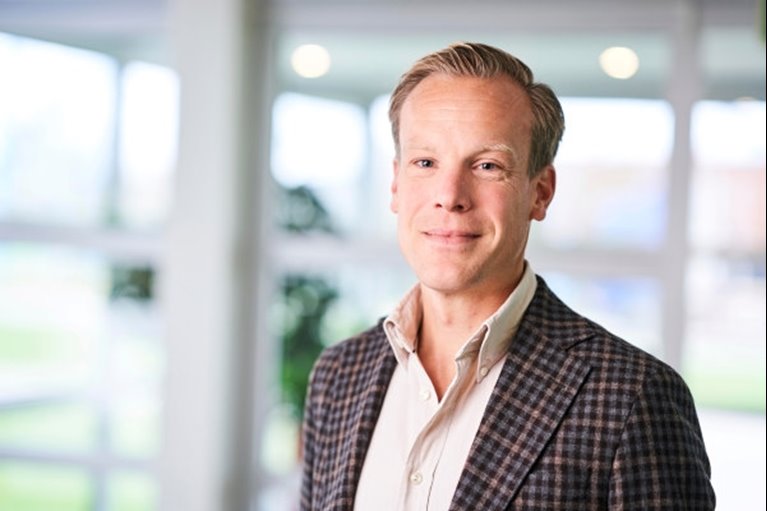Foreword: Our sustainable future is yours
Having recently returned from a snowless ski resort in the Austrian Alps where the temperature was an unusual 10 degrees, I had a personal reminder of the accelerating emergency that is climate change. For the tourist, it’s first-world inconvenience. For those who make their living from the ski season, it’s a threat to their livelihoods. Just one small example that slowly but surely, the impact of climate change is coming closer to home for all of us, and that we all have a responsibility to try and change the trajectory.

You won’t be surprised to hear that as a Swedish forest industry group, we place ourselves among those who hold a key to a more sustainable future. Södra’s strategy is built around its people and its culture with sustainability and resource efficiency at the heart of all we do.
The idea of the pulp mill as biorefinery is not a new one; we have been seeking to maximise the value of our trees with everything from green energy to tall oil for years, but the drive to push innovation further and to optimise resource efficiency further still is intensifying.
We are backing up that vision with science. We are committed to the Science-Based Targets initiative (SBTi) with the intention to halve our fossil-based CO2 emissions by 2030 compared with 2020 and to be net zero by 2040. This matters for you because our product-related Scope 1, 2 and 3 emissions are your Scope 3 (indirect) emissions. If we can reduce our impact, we can help you to lower yours.
Pulp is central to our success in reaching these targets. It remains at our core and is the reason we can develop an ever-expanding portfolio of fossil-free solutions from lignin and district heating to our range of Liquid Forest innovations. (Incidentally our liquids – tall oil, turpentine and biomethanol, are the first in the world to have been certified to FSC). And with mounting pressure on wood as a resource, the more value we can extract from a harvested tree, the greater the case we build for forest products and their future.
The entire value chain is interlinked. If we extract lignin from our process to use as fuel in our lime kiln or generate biomethanol and use it to fuel our vessels and our trucks, we increase our use of non-fossil fuel and hence lower our CO2 emissions. If we sell the lignin to a resin producer or biomethanol to a chemical company, our own emissions might not benefit directly but the recipient’s will. Crucially, of course, it’s a win for the planet: a virtuous circle.
We cannot create a more sustainable future single-handedly, which is why supply chain collaboration is also high on the agenda at Södra. I’m delighted to say that I’ve had four meetings in the past week alone, and dozens before them, just dealing with enquiries on possible applications for our lignin. We’re looking at new markets and new products in parallel to the core pulp business, and we’re even starting to see existing pulp customers become customers of Södra Bioproducts as they seek fossil-free alternatives for a wide range of applications.
Gradually all industries from shipping to chemicals are adapting to a world where biomaterials will be the answer. It’s heartening to be part of the solution and gives me hope that the coming year will be one of considerable opportunity for us all.
Johannes Bogren, Vice President Södra Cell Bioprodcuts

Show all content for topic
Subjects: Pulp
